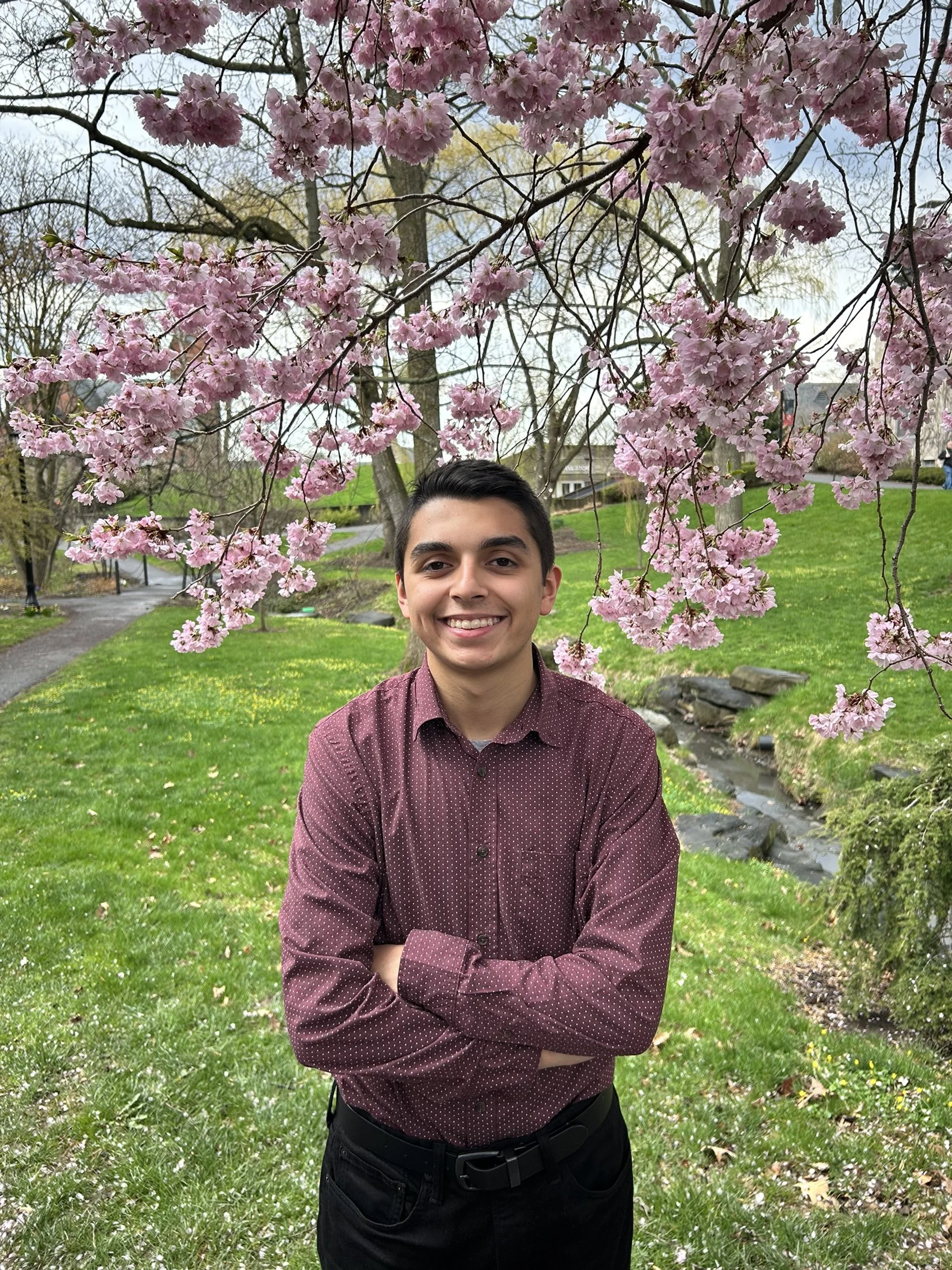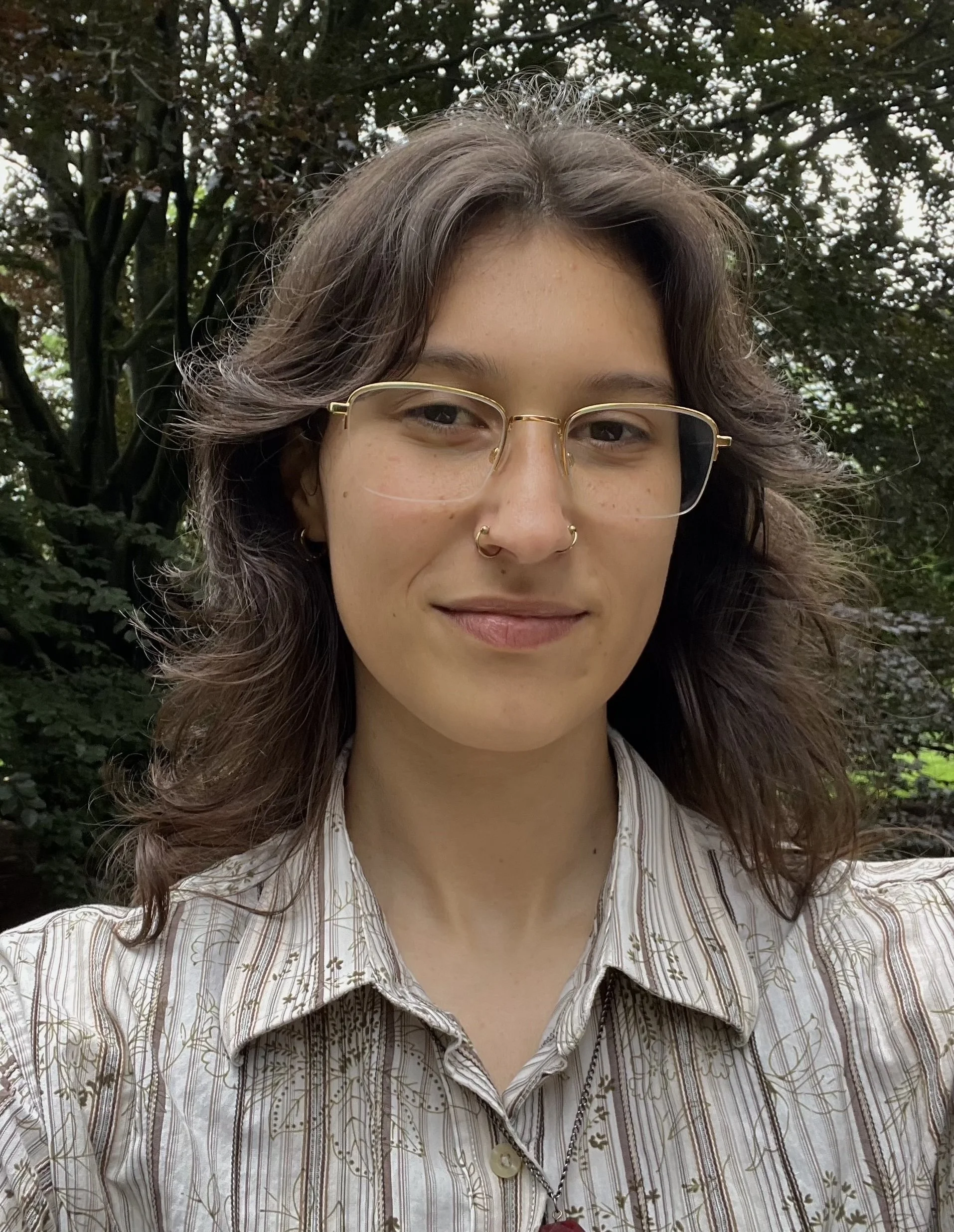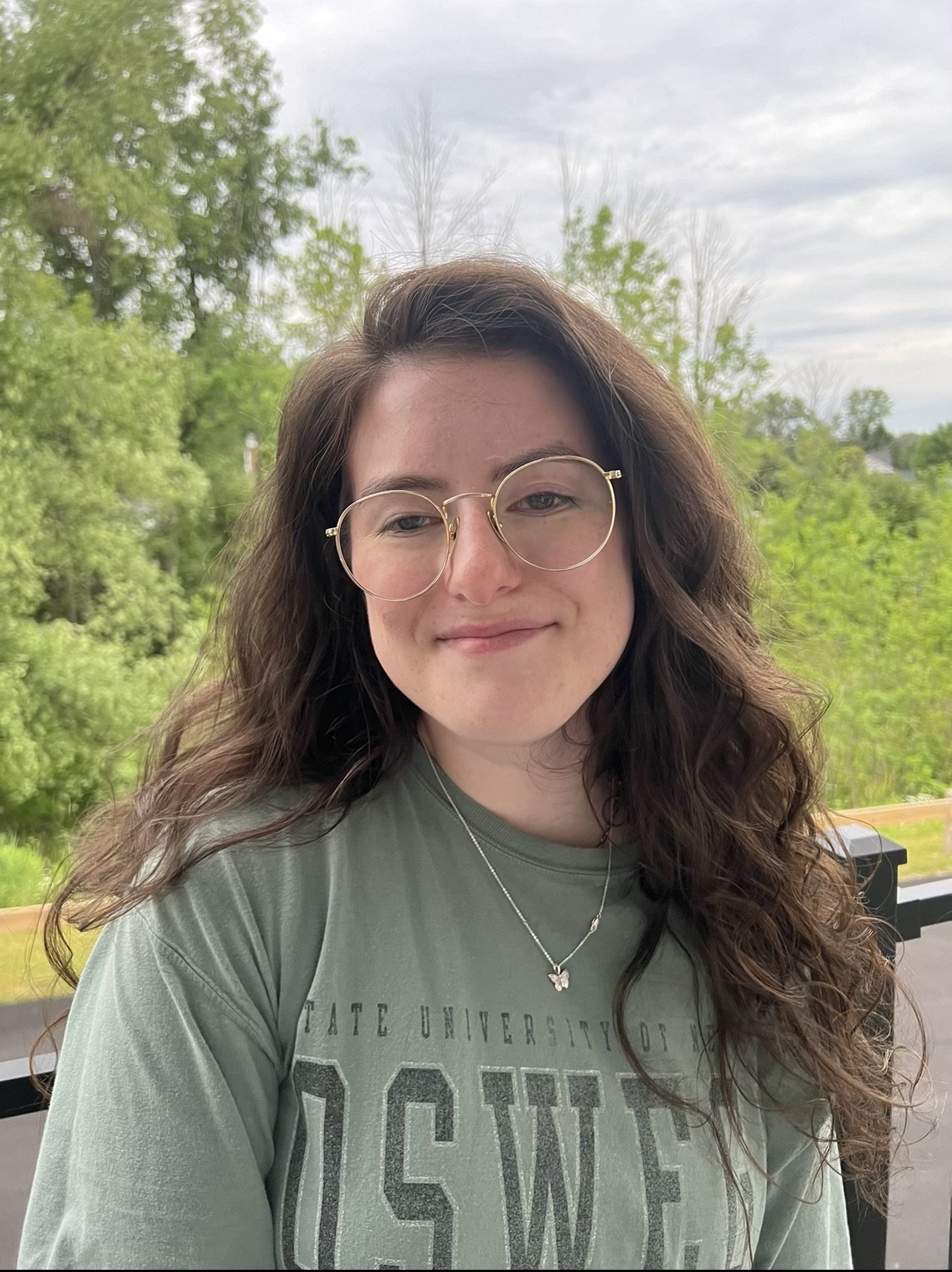
StoryMakers:
Indigenous America 250
Summer Internship
Come join us and empower our stories.
Imagine yourself in Philadelphia, a central location in Colonial America and an important meeting site for Indigenous councils and settler colonists.
You meander down cobblestone streets and visit various archival collections around the city. In the library, you engage directly with historical documents including transcripts, letters, speeches, and travel journals. You open a box and pore over maps, sketches, and treaties from over two hundred years ago.
You seek the records, presence, and stories within primary sources to create Indigenous-centered case studies and research related to the 250th Anniversary of the United States.
You are part of a collaborative, Indigenous-led, and community-driven team bringing the past to light.
Together, we are creating space for
Indigenous histories.
Introducing the 2025 StoryMakers
Summer Internship
This exciting, capacity-building research internship provides training for future scholars and professionals, bolstering representation of Indigenous people working in archives and special collections, and supporting the research goals of the larger Indigenous America 250 initiative.
With multiple research centers and archives that steward collections related to Indigenous history, the city of Philadelphia is an ideal place to learn and experience archival research.
Birch, William Russell. [Artist’s study of detail from New Lutheran Church, in Fourth Street Philadelphia]. 2020. The Library Company of Philadelphia, PA. Philadelphia. 1799. Accessed 21 Oct. 2023.
Join us for an unforgettable summer research experience.
In 6 weeks you will:
Learn archival research techniques
Study NAIS theories, and research methods
Orient yourself to multiple archival collections and to Philadelphia as an Indigenous place and modern metropolis
Uncover historical records, stories, translations, and treaties related to Early American history
Reclaim Indigenous stories and understandings in colonial America
Research Native American History as a discipline
Conduct independent and collaborative research
Generate case studies to inform the Indigenous America 250 initiative
Collaborate with a highly engaged cohort both online and in-person
Connect with Native American and Indigenous Studies (NAIS) academic experts, community knowledge holders, and National Park Service leaders
Expand your network and research skills
Who is this for?
-
Scholars
Scholars of Native American and Indigenous Studies, History, American Studies, Museum Studies, Anthropology, Education, Political Science, Recreation and Park Management, etc.
-
Current Students & Recent Graduates
Undergraduate and Graduate students welcome. Members or descendants of tribal nations are particularly encouraged to apply.
-
Young & Emerging Professionals
18 - 30 years old, up to 35 years old with Veteran status interested in archival research
Meet Dr. Alyssa Mt Pleasant,
Lead Scholar for Indigenous America 250 and StoryMakers
Alyssa Mt. Pleasant (Tuscarora descendant) grew up in Syracuse, NY. She is the founder and managing member of ATW Research and Consulting LLC, which develops public-facing scholarship and projects that connect Indigenous peoples with archival collections.
Trained as a historian, Mt. Pleasant works at the intersection of early American history and Native American and Indigenous Studies. Prior to founding ATW, she worked in higher education for over 20 years; Mt. Pleasant was a faculty member at Yale University and the University at Buffalo (SUNY). She has served the History and Indigenous Studies professions as an elected member of the Council of the Omohundro Institute for Early America History and Culture and the Council of the Native American and Indigenous Studies Association.
In 2018 she co-authored an award-winning state-of-the-field essay “Materials and Methods in Native American and Indigenous Studies: Completing the Turn,” published in both the William and Mary Quarterly and Early American Literature. Additionally, she has published articles and book chapters about Indigenous education, Indian-missionary relations, material culture, Indigenous biography, and the early American republic.
In 2024 Mt. Pleasant was elected to the membership of the American Antiquarian Society, a learned society whose members have distinctive achievements in academic or public life.
An Archival Research Experience Awaits…
During the six week paid internship, we meet virtually and also have the opportunity for two weeks of on-site archival research as a group in Philadelphia.
During our time in Philadelphia, you will have a robust schedule for on-site collaborative and independent research at multiple archival collections, informational tours, professional meetings, and networking opportunities. Of course, there will be time for fun and relaxation in the City of Brotherly Love as well.
This is a dedicated six week paid internship with a stipend of $4,300 and accommodations plus travel reimbursement.
A commitment of 35 hours/week is required.
Ready to Apply?
We will be welcoming eight StoryMakers Interns for the next Cohort.
Will you be one of them?
Meet the 2025 StoryMakers Interns
Ayda Donne
Ayda Donne is a doctoral candidate in the English Department at NYU and the Director of Grants and Research at Eighth Generation Consulting. His research centers on the relationship between Indigenous sovereignty, energy infrastructure, U.S. nuclear testing, and ideologies of containment and contamination.
Diane Hill
Diane Hill (she/her) is from the Oneida Nation of the Thames located in southwestern Ontario, Canada. She is currently a PhD student in the Sociology of Education program at New York University (NYU). Diane’s research interests are concerned with Indigenous sovereignty, student experiences in higher education, and Indigenous methodologies. Her work aims to understand and make sense of the ways in which Indigenous students across educational institutions in Canada and the U.S. are enacting and mobilizing sovereignty in the contemporary climate crisis.
Emiliano Beardall
Emiliano Rocha Beardall is a rising sophomore at Cornell University in Ithaca, New York. He is passionate about sports labor law,data analytics, and Native American studies. Emiliano is pursuing a degree in Industrial and Labor Relations with a minor in indigenous studies through Cornell’s American Indian and Indigenous Studies Program (AIISP). Emiliano is a member of Native American and Indigenous Students at Cornell (NAISAC), as well as the Cornell ILR Sports Business Society. During his freshman year, he also worked as an office assistant for AIISP, where he primarily assisted the program with archiving their past newsletters and events. Additionally, he has a passion for social justice issues and is invested in learning more about how fair labor practices can reduce inequalities in sports and beyond.
Julian Cook
Julian is a coast salish artist and advocate for indigenous and women’s rights from northern California. She has spent the last three years working and volunteering within the Bay Area two spirit community working towards obtaining more funding and recognition for two spirit organizations. Within Sonoma County she’s especially passionate about fighting for more resources put towards fighting the missing and murdered Indigenous women’s crisis within California. She’s currently working towards an associates in cultural anthropology at Santa Rosa Junior College with the goal of transferring to a four year college to obtain her degree. At the Santa Rosa Junior College Julian works at the campus multicultural museum guiding tours for elementary school students and teaching them about Indigenous cultures across the Americas.
London Poor Thunder - Hutcherson
London Grayce Poor Thunder - Hutcherson is an enrolled member of the Oglala Lakota Sioux Tribe and a descendant of Chief Red Cloud. She is a Junior at George Mason University in Fairfax, Virginia, studying History with a concentration in Public History. London is also vice president of the Native American and Indigenous Alliance student organization, which is dedicated to sharing and celebrating Native American and Indigenous History and assisting new and transferring Native American and Indigenous students to campus. She has also worked on two student-curated exhibitions with the National Trust for Historic Preservation, which have been added to Mason Exhibitions Buchanan Hall Art Gallery on George Mason’s campus.
Maya Armus
Maya Guzman Armus is from Los Angeles, California and is a recent graduate of Vassar College. She received her BA in Anthropology with a correlate in Native American Studies. Her research is centered in critical museum studies, collection ethics, and NAGPRA repatriation protocols and duty of care. Maya has assisted in Vassar College’s repatriation efforts and served as collections intern at both the Frances Lehman Loeb Art Center and the New York State Museum. Her time as an undergraduate student was spent studying repatriation cases across Turtle Island as avenues for communal healing and cultural revitalization, as well as catalysts for institutional accountability and reparative action. Her work explores institutional collections as sites of ongoing colonial violence and settler endurance, while also being spaces of potential for celebration of contemporary artists and resource sharing with Indigenous communities and scholars. Maya holds immense gratitude and love for her mentors and peers who have supported her and generously shared their expertise, understanding that with the sharing of knowledge comes the responsibility to take action and reciprocate these gifts.
Sophia Khan
Sophia is a third-year undergraduate at Tufts University pursuing a B.A. in History with a concentration in early America, and a minor in Museums, Memory and Heritage. She is a descendant of the Alaskan Yupik Akiak Native Community and Sámi people. Sophia is actively engaging with this heritage by seeking out Native voices in her academic and personal research and approaching Indigenous narratives with curiosity and a commitment to responsible storytelling. She is pursuing a career in exhibition design and public history where she hopes to present history in a way that is intriguing and accessible for everyone.
Sophia has conducted archival research as a summer research assistant for “Last Seen: Finding Family After Slavery” and recently through coursework where she investigated the Tufts family’s brick yard business and its implications for the family’s wealth and racial labor dynamics. She will be continuing this research for the “Slavery, Colonialism and their Legacies at Tufts” project as a Gerald Gill Fellow in the fall. Sophia contributes her graphic design work to internships, campus organizations and her personal portfolio.
Stella Greendeer
Stella Greendeer is an enrolled member of the Ho-Chunk Nation, with ancestral affiliations to the Prairie Band Potawatomi and Kaw peoples. A member of the Deer Clan, she was raised in the Driftless Region of Wisconsin. Greendeer holds an Associate of Applied Science degree in Textile and Surface Design from the Fashion Institute of Technology (2020) in New York and is currently pursuing a Bachelor of Fine Arts in Studio Arts, with a minor in Museum Studies, at the Institute of American Indian Arts in New Mexico.
Her artistic practice is interdisciplinary, encompassing a diverse range of mediums and methodologies. During her time in New York and Santa Fe, she assisted designers such as Cara Marie Piazza and Patricia Michaels, whose work respectively centers on sustainable, hand-dyed textiles and artisanal garment fabrication. In Wisconsin, Greendeer taught printmaking at Youth Initiative High School and collaborated in a public art trio, the Smockettes. The group was recognized with the Wisconsin Main Street Awards for Best Private Placemaking Improvement Project for their mural installation highlighting regional flora. Greendeer’s work is grounded in a commitment to community empowerment through education and creative expression. She is particularly invested in the transmission of land-based knowledge and the integration of Indigenous epistemologies into contemporary art practices.
Meet the 2024 StoryMakers Interns
Kianna Pete
Kianna Pete is a Diné (Navajo) scholar, climate justice advocate, and education and policy researcher from New Mexico. She collaborates with Indigenous public health and environmental organizations, scientists, educators, organizers, legal professionals, and other researchers across Turtle Island to promote Indigenous self-determination and educational equity. Kianna's work is guided by Diné teachings to respectfully bridge collective knowledge and autonomy to address socio-political issues affecting Indigenous communities through her digital content writing, social justice curriculum development at Start:Empowerment, Rights of Nature advocacy at Grand Canyon Trust, and research at the American Institutes for Research and Teachers College, Columbia University.
Kianna is a graduate student at Teachers College, Columbia University studying politics and education. At Columbia, she is an Arthur Zankel Fellow where she assists in teaching civil rights history in Harlem, NY, and is a research assistant for the Center for Educational Equity advocating for children’s education rights. She has previously worked with the Newcomb Navajo Nation Chapter, Ben Ray Luján’s Congressional Office, Research for Indigenous Social Action & Equity at the University of Michigan, and the Association for American Indian Affairs. She earned her BA in Political Science and Ethnicity & Race Studies specializing in Indigenous/Native Studies at Columbia University.
Owen Fleet
Owen Fleet is from LaFayette, New York. He is a descendant of theAkwesasne (Saint Regis) Mohawk Nation, and has been working hard to learn and preserve the traditional knowledge and history of the people from whom he descends. Owen is now a fourth year student at Syracuse University pursuing an undergraduate degree in anthropology, with a minor in Native American and Indigenous studies. He is an advisory council member for SU’s Center for Global Indigenous Cultures and Environmental Justice, the goals of which include expanding the Native American and Indigenous studies program on campus, and hopefully creating an undergraduate major in Native American and Indigenous studies.
It is Owen’s goal to pursue a master’s degree and potentially a PhD related to his current research and studies. After university he plans to facilitate the repatriation of stolen or “illegitimately acquired” Indigenous artifacts back to their home nations and communities, and to help decolonize the field of anthropology and the museum system.
Mary Smith
Mary Smith is Diné (enrolled member), Hopi, and Kawaika (Laguna Pueblo). Her clans are Ta’neezahnii, Tolaní Dine’é, Tl’aashchi’i, and Kiis’aanii and she comes from Tségizh, a small community on the Navajo Nation. As a first-generation student, Mary graduated from the University of Utah in 2023 with bachelor’s degrees in Mathematics and Ethnic Studies. She is currently a second-year master’s student at University of Utah in the Department of Education, Culture, and Society.
Mary’s research interests focus on Indigenous education and its histories, Indigenous Knowledge Systems, and storytelling. My current work highlights a new facet of Indian Boarding School history between 1879-1932 by connecting land, policy, and mathematics education. This project has unveiled how mathematics curricula was used to transform Native students’ relationships to and ancestral knowledges of land.
Elaina Berlin
Elaina Berlin is a current Ph.D. student and Graduate Teaching Assistant in the History department at UAlbany. She has spent her entire higher education in the pursuit of the proper tools to investigate the history of the Haudenosaunee people and how to see and reproduce history while centering the living descendants. She actively engages learning opportunities with community members and incorporates it into her research endeavors. Elaina’s dissertation will highlight the original inhabitants of the land which continues to shape her personal, professional, and pedagogical relationships of exchange.
Elias Treuer
Elias Treuer is a current undergraduate student in his fourth year at Dartmouth College majoring in Native American Indigenous Studies and minoring in Linguistics. He is an enrolled member of the Leech Lake Band of Ojibwe in northern Minnesota. He founded his first business in fourth grade called Real Nish to promote indigenous pride and cultural awareness through custom apparel design and production and is currently looking to make it into a valuable resource hub for young Ojibwe individuals to bridge educational gaps within his community.
During his time at Dartmouth College, Elias worked with the Fond du Lac Band of Ojibwe on an expert testimony report for an upcoming treaty case and plans to pursue a Law degree post-graduation specializing in Federal Indian Law. During his free time, he works on app development for a future startup to revolutionize Indigenous language learning with AI. Beyond his entrepreneurial pursuits and legal interest, he is deeply passionate about combining education and innovation.
This immersive archival research internship is ideal for:
People who are 18 to 30 years old (35 with veteran status)
Members or descendants of tribal nations who are interested in archival research
Current undergraduate or graduate students
Students and scholars of Native American and Indigenous Studies, History, American Studies, Museum Studies, Anthropology, Education, Political Science, Recreation and Park Management, etc.
The Indigenous America 250 StoryMakers Summer Internship is supported with funding assistance from the National Park Service, Interior Region 1.
The StoryMakers Internship is an extension of the Indigenous America 250 project that revisits the experiences of tribal nations during and beyond the Revolutionary War period.
This community-engaged and collaborative effort draws on best practices from Native American and Indigenous Studies (NAIS) to expand understanding of the experiences and perspectives of tribal nations on their own terms.

















